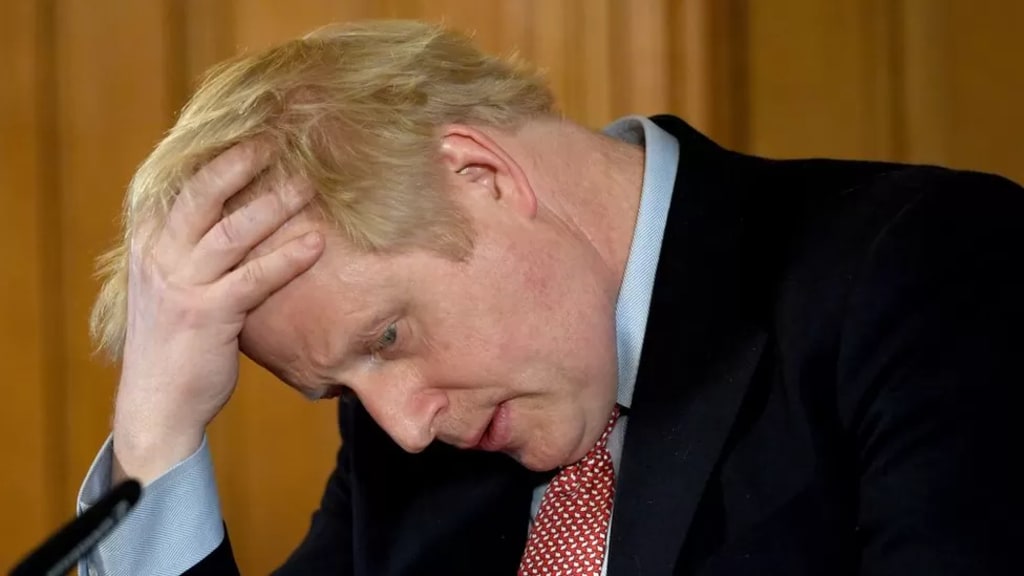Boris Johnson:
The Liar or the Victim of Misunderstanding?

Introduction
In the political landscape, accusations of dishonesty are not uncommon. However, few figures have faced the magnitude of criticism as British Prime Minister Boris Johnson. Over the years, Johnson has been labeled a liar by numerous individuals and organizations, leading to a widespread perception of his credibility being questionable. This article aims to examine the reasons behind why people call Boris Johnson a liar as of June 15th, the year of 2023.
Brexit Promises and the Northern Ireland Protocol
One of the main factors fueling the perception of Johnson as a liar stems from his handling of Brexit. During the Brexit campaign, Johnson made bold promises regarding the benefits of leaving the European Union. However, critics argue that many of these promises have not materialized or have been compromised, tarnishing his credibility. The controversy surrounding the Northern Ireland Protocol, which has caused trade disruptions between Northern Ireland and Great Britain, has further fueled accusations of dishonesty against Johnson.
U-turns and Policy Reversals
Another contributing factor to the perception of Johnson as a liar lies in his tendency to perform U-turns and policy reversals. Throughout his premiership, Johnson has made several high-profile reversals, often on issues he previously championed. Critics argue that these abrupt changes indicate a lack of commitment to principles and suggest a willingness to manipulate the truth for political expediency.
Handling of COVID-19 Pandemic
The COVID-19 pandemic has presented significant challenges for leaders worldwide, and Boris Johnson has faced intense scrutiny over his handling of the crisis. Critics point to instances where Johnson's statements appeared to contradict scientific advice or the reality on the ground. This has led to accusations that he intentionally misled the public, damaging his credibility in the process.
Inaccurate or Misleading Statements
Johnson's history of inaccurate or misleading statements also contributes to the perception of him as a liar. Critics argue that he has been caught making false claims or providing misleading information on multiple occasions. Whether it is about the costs of projects, statistics, or personal details, these instances have further eroded public trust and reinforced the label of Johnson as a dishonest politician.
Controversial Personal Life and Integrity
Johnson's personal life has also been a subject of scrutiny, adding to the accusations of dishonesty. His extramarital affairs and controversial statements about them have raised questions about his integrity. Critics argue that his personal conduct has repercussions on his public character, leading to doubts about his truthfulness in all aspects of his life and career.
Media Manipulation and Spin
Johnson's critics accuse him of employing media manipulation and spin to shape public opinion and deflect attention from his shortcomings. They argue that his administration has used techniques such as distracting headlines, selective media briefings, and deflection strategies to control the narrative. These tactics have contributed to the perception that Johnson prioritizes political expediency over truthfulness.
The Liar's Trail
Boris Johnson's reputation as a liar is not an unfounded accusation. Throughout his political career, he has been embroiled in numerous scandals, with his dishonesty becoming a recurring theme. One of the most notable examples is the Brexit campaign, where Johnson repeatedly made false claims about the benefits of leaving the European Union. From the infamous £350 million per week claim to the promise of an easy trade deal, Johnson's statements were often debunked as misleading or outright false.
During the COVID-19 pandemic, Despite clear evidence suggesting the need for strict lockdown measures, Johnson downplayed the severity of the virus and delayed implementing necessary restrictions. His initial claim that he was following scientific advice was later refuted, revealing a pattern of bending the truth to suit his political agenda.
Consequences of Deception
The consequences of Johnson's lies are far-reaching. Firstly, they erode public trust in political leaders and institutions. When a leader consistently engages in deceptive practices, citizens become disillusioned and skeptical of their motives. This damages the fabric of democracy, hindering the government's ability to effectively govern and make decisions in the best interest of the nation.
Secondly, Johnson's dishonesty has had tangible effects on people's lives. During the Brexit campaign, many individuals voted based on the false promises made by Johnson and his allies. As the reality of the situation unfolded, it became clear that the outcomes were far from what was initially presented. Businesses suffered, citizens faced uncertainty, and the UK's relationship with the EU became strained.
In the case of the COVID-19 pandemic, Johnson's misleading statements and delayed actions potentially cost lives. By downplaying the seriousness of the virus and resisting necessary restrictions, the government's response was slow and inadequate, leading to a higher death toll and increased strain on the healthcare system.
Current Impact on Johnson's Life
As of June 15th, 2023, the label of "liar" continues to follow Boris Johnson, significantly impacting his life and political career. The erosion of public trust has translated into a growing dissatisfaction with his leadership, leading to declining approval ratings. The perception of Johnson as an untrustworthy figure has weakened his ability to garner support and effectively govern.
Moreover, his dishonesty has strained his relationships with political allies. Johnson's penchant for bending the truth has created a sense of unease and skepticism among his colleagues, who may question his ability to make honest and reliable decisions. This internal erosion of trust can hinder his ability to build effective coalitions and maintain party unity.
The media has also played a significant role in perpetuating Johnson's reputation as a liar. Journalists and news outlets have extensively covered his controversial statements and exposed the inconsistencies in his rhetoric. This constant scrutiny has further damaged Johnson's credibility and made it difficult for him to shake off the accusations.
Conclusion
The perception of Boris Johnson as a liar on June 15th, 2023, is the result of a combination of factors. From unfulfilled Brexit promises to policy reversals, mishandling of the COVID-19 pandemic, inaccurate statements, controversies surrounding his personal life, and accusations of media manipulation, Johnson's credibility has been severely undermined. While his supporters may argue that some accusations are politically motivated or exaggerated, the consistent pattern of questionable behavior has contributed to a general sense of mistrust surrounding the prime minister. Ultimately, it is up to the public to decide whether Johnson's reputation as a liar is justified or if it stems from a misunderstanding of his actions and intentions.






Comments
There are no comments for this story
Be the first to respond and start the conversation.